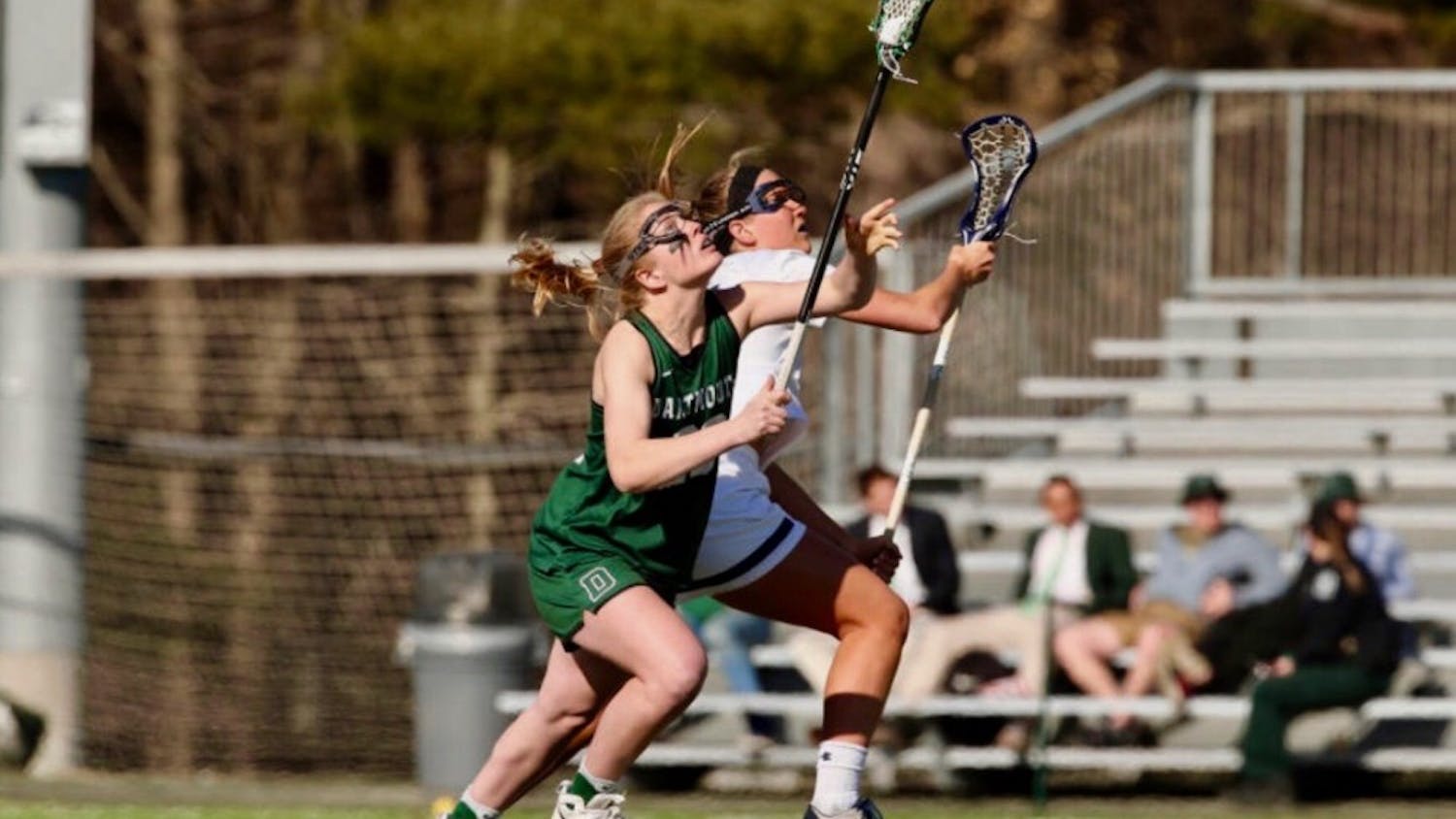Netflix’s “Tall Girl” is a film that I will carry in my heart forever. I have never in my life felt such burning hatred for a movie before, and for setting that record — for teaching me that I am capable of hating a medium of art that I love so dearly — “Tall Girl” is special to me.
I’m going to fully admit that I’m not prone to enjoying romantic comedies and teenage chick flicks, so I may have been biased going into “Tall Girl” to start with. That being said, I think anyone particularly fond of “chick flicks” would agree with me that “Tall Girl” is an embarrassing contribution to the genre.
“Tall Girl,” for those of you who don’t know, is a movie about Jodi Kreyman (portrayed by Ava Michelle), a tall high school girl — six feet one inch, to be exact — who feels ostracized at school due to her height. She is constantly made aware of her stature, and according to this largely unconvincing movie, her height makes her peers find her “ugly” for the majority of the film. Throughout the film, Jodi deals with her insecurities as well as her queen bee tormentor Kimmy Stitcher (portrayed by Clara Wilsey), the stereotypical gorgeous-but-evil popular girl. On top of that, she develops a huge crush on Stig Mohlin (portrayed by Luke Eisner), the hot new exchange student from Sweden who begins dating Kimmy shortly after he arrives at Jodi’s school.
First things first, my synopsis of “Tall Girl” alone shows that the film isn’t exactly anything complex or unique. We have a cast of flat characters that perfectly fit into every trope imaginable: the “Regina George”-style antagonist mirrored in Kimmy, the soft-spoken and insecure main character who doesn’t realize her beauty until her makeover in Jodi, the sassy black friend who is hardly more than a prop in the screenplay represented by Fareeda (potrayed by Anjelika Washington) and Stig, the hot guy. If the filmmakers had chosen to take this amalgamation of uninteresting characters and put them to use in an unorthodox plot line — or were more self-aware of how stereotypical their film is and threw in some humor to deliberately create a campy masterpiece — “Tall Girl” might have actually been good. But no, the filmmakers chose to take the easy way out, and instead produced 101 minutes worth of cookie-cutter characters playing out a shallow, superficial and underdeveloped plot about a privileged girl whose biggest problem is that she is as tall as many supermodels. Tough life.
Further on that point, the biggest problem with “Tall Girl” is how utterly unrelatable and annoying the film is. Every movie needs to have a central conflict that is believable for viewers to care about what’s happening, but movies like “Tall Girl” need that even more. Without high-stakes car chase scenes or a fantastical setting that naturally demands an audience to suspend their disbelief, realism is crucial. Movies that are about the whole “universal” teenage experience flourish off of viewers connecting and empathizing with the protagonist on top of the aforementioned acceptance that the conflict at hand is indeed a worthwhile and interesting conflict. “Tall Girl” fails in both of these regards.
First, Jodi, the protagonist, is really unlikeable and thus hard to empathize with. I attribute this mostly to her complete lack of depth, personality or meaningful character development and Michelle’s school-play level acting. Seriously, this is the first movie I’ve seen where the protagonist — a character I should be rooting for — is crying and monologuing in her emotional climax and I wanted to tell her to shut up and get over herself. Maybe I’m heartless, but I promise you that at least part of my apathy was because of Michelle’s entirely flat affect and crying that seemed a lot more like hiccuping or the whooping cough.
Second, and most crucially, Jodi’s problem is hardly a problem, and as a result, I simply can’t buy into the movie itself. Before you accuse me of invalidating Jodi’s experience and the experience of any tall girl out there, allow me to explain myself. I fully believe that being bullied for any physical characteristic is a terrible experience. People making you feel super aware of a physical characteristic or social identity is similarly no fun. But Kimmy, Jodi’s main tormentor, is such a joke of an antagonist, so laughable in her attempts to be mean that I feel like Jodi could probably just shoot Kimmy a mean look and she would back off. Seriously, Kimmy was meaner in Jodi’s flashbacks to elementary school than she actually is in the present setting of the movie. While Kimmy hardly notices Jodi, Jodi seems to be overly conscious of Kimmy and inflates Kimmy’s her cruelty in her own head. Unlike Jodi, Kimmy seems to have grown up and moved on with her life for the most part. If anything, any hostility Kimmy has toward Jodi feels somewhat warranted, as Jodi is clearly trying to make a move on her boyfriend Stig. People other than Kimmy seem to largely leave Jodi alone. So my question is: What bullying is Jodi experiencing? Though you may be convinced Jodi has it rough since the film is told in her perspective, if you watch carefully, you can see she really is just experiencing a lot of self-pity and creating her own problems. Kimmy isn’t nice to her, but she’s nothing more than a little snappy until Jodi starts yearning for Stig.
Moreover, Jodi also has an immensely supportive family and two best friends who are by her side no matter what, so it seems like Jodi has what she needs in life. Regardless, Jodi essentially dismisses this web of care she has around her and comes off as a self-involved, ungrateful and vacuous brat. Granted, you could say that her family in particular is somewhat misguided in the way in which they try to support Jodi, but her response of storming into her room and refusing to communicate when her father tries to celebrate her height seems a little immature for a girl who is nearing adulthood. In addition, Jodi’s best friend is so under-appreciated and done with Jodi’s self-centered and self-destructive behavior that she ignores Jodi for a bit, but then pops back in at the end of the film without a real, direct apology from Jodi. This makes Jodi even more unlikable, as she demonstrates no growth or appreciation for her friend — confirming my unfortunate suspicion that grew throughout the duration of the film that Fareeda, Jodi’s black best friend, is a token person of color rather than a real character. Fareeda doesn’t even have a last name.
In addition, Jodi says that she’s ugly or considered ugly due to her height. Let’s face it, six feet one inch is tall, but definitely not freakishly tall like the movie tries and fails to convince viewers to believe. Then again, maybe the movie really wasn’t trying at all, since throughout, Jodi goes through three potential suitors who are all very interested in her.
My biggest complaint about “Tall Girl,” though, is just how much the film reeks of tone-deaf privilege. I was slightly insulted that the filmmakers really thought so little of their potential audience to assume that people would be naive and clueless enough to buy into the film’s premise: the idea that this young and immature, air-headed, uninteresting, rich, for all intents and purposes straight, cis white girl character with supportive friends, family and romantic interests deserves her own movie because she happens to be a bit taller than average. This, of course, is an even more preposterous notion once you take into account the fact that there is a far more interesting person of color handmaiden-like character in her shadow because she somehow is less compelling than a white girl whose model-height provides a tale of “adversity.” The film is trying to tell us that it’s not just her height, it’s that she’s undesirable because of her height.
But as I mentioned, this is clearly not the case, since there are multiple male characters who very openly and enthusiastically express romantic interest in Jodi. In addition, Michelle is a tall, thin, blonde white woman with European features, perfect skin and teeth and no visible disabilities. I can assure you that most people would consider her far above average in her attractiveness. On this last point, I don’t know whether casting Michelle as Jodi was because the filmmakers are really out-of-touch enough to think that longer legs equates to unattractiveness, or because the film industry is terrified of casting anyone “unattractive” to the point that they would sacrifice the integrity of their plot. Either way, it was a poor choice, and so was the creation of this movie.



